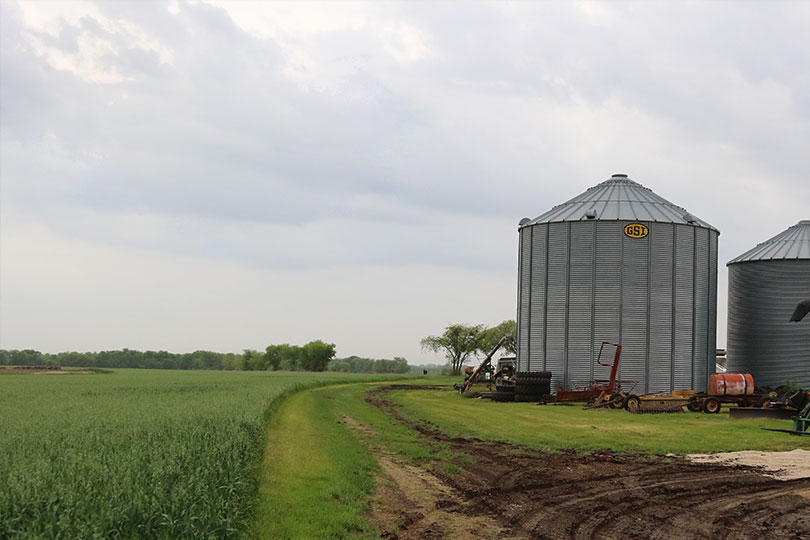By Julie Tomascik
Editor
The road ahead for Texas agriculture is paved with uncertainty amid the ongoing COVID-19 pandemic, but farmers and ranchers try to remain optimistic about the future.
During a Texas Farm Bureau (TFB)-hosted webinar, The Road Ahead for Texas Agriculture, speakers addressed the impact of the global pandemic on Texas and American agriculture.
“Our discussion tonight gives us a chance to look forward. It offers a window for us to learn what economic forces lie ahead that could impact our markets, and it allows us to explore what resources might be available from Congress in the near term to help us manage these challenging times,” Russell Boening, TFB president, said during the Tuesday night webinar.
Tough economic hardships are facing Texas farmers and ranchers, but U.S. Rep. Mike Conaway said more financial assistance could be possible.
“Rural America and the ag economy came into this fight in a worse off position than anywhere else in the economy. Times are hard in rural America. I believe more resources are needed in moving forward,” said Conaway, who is the U.S. House Agriculture Committee ranking member and former chairman. “I believe that, and many of my colleagues believe that, there are additional resources needed for addressing this COVID impact on production agriculture.”
Since social distancing and shelter-in-place orders were implemented, consumer purchasing habits shifted to meals at home, creating disruptions in food and agricultural supply chains across the nation as manufacturers, suppliers and other industry pieces struggled to adapt.
“But to the credit of production agriculture, you’ve met the test and one of the most strenuous circumstances in our lifetimes in terms of the supply side and getting it to the market, getting it to consumers, so that we don’t have people going hungry in America in addition to all the other things that are happening,” Conaway said. “You stuck with the fight, and Americans are better off for what you have done.”
A report recently released by Texas A&M University’s Food & Agricultural Policy Center (AFPC) estimates $6-$8 billion in possible losses for Texas agriculture without intervention or price recovery.
“If you extrapolate from that number, from Texas out to the United States, we’re talking about some eye-popping impact estimates in what we’ve seen so far, and CARES is certainly not going to be enough,” Dr. Bart Fischer, AFPC co-director, said.
Fischer discussed the Coronavirus Food Assistance Package (CFAP), outlining program details and deadlines.
Farmers can request the U.S. Department of Agriculture consider other commodities to be eligible for CFAP assistance through June 22.
“For our part of the world, the most notable commodity that’s absent from the list is probably hard red winter wheat,” Fischer said.
He noted the frustration livestock producers have related to the April 15 deadline to participate in CFAP.
“By far the biggest problem was the April 15 date, which looks incredibly arbitrary,” Fischer said. “A lot of what we’re seeing, particularly in preparation for CARES-2 and really pressure on USDA once they have this additional funding available, is to revisit that date and provide some flexibility.”
Additional risk management tools for livestock could become available, if the livestock industry advocates for that need, Conaway said.
“Typically, you (livestock producers) have not wanted a lot of help from your government, but as a member of Congress, I would be open to having those conversations to see what might be available,” he said.
Dr. Joe Outlaw, co-director of AFPC, outlined dismal prices and farm income projections from the University of Missouri’s Food & Agricultural Policy Research Institute.
“I showed you some dismal, dismal look at prices that will not happen. These are projections. They were based on average weather,” Outlaw said. “Average weather never happens, but you need to plan as if it could. At the end of the day, it matters what China does. It matters what Brazil and Argentina do.”
And the speakers encouraged farmers and ranchers to be engaged in the political process.
“Just keep telling your story. Make sure that your member (of Congress) knows the story, that your member understands just how tough things are,” Conaway said. “As this thing unfolds, just continue to build those relationships with your members, help them understand exactly how things are going.”
In addition to CFAP, several other programs are available for farmers and ranchers to receive assistance. Those programs include the Paycheck Protection Program, Economic Injury Disaster Loans, WHIP+ and enrollment for the Agriculture Risk Coverage and Price Loss Coverage programs.
Click here for more information on CFAP and more information from AFPC’s report on the program.
Click here to view the webinar.
This was the first in a series of webinars for Texas farmers, ranchers and landowners TFB intends to host this summer in response to the cancellation of the TFB Summer Conference.

